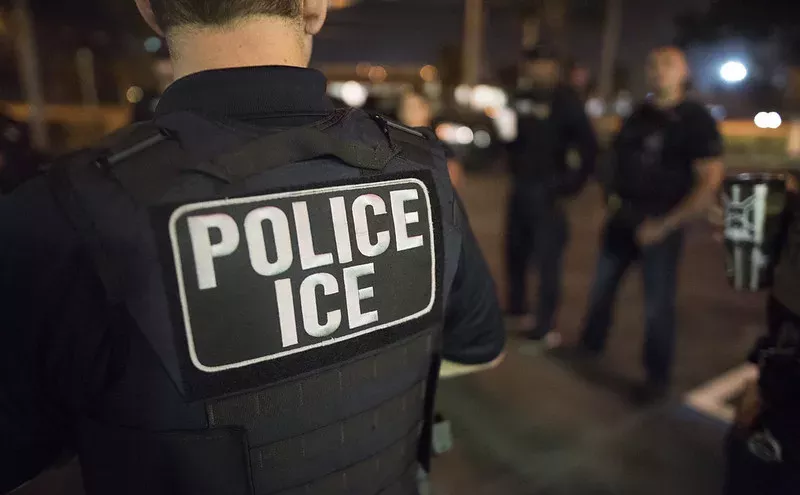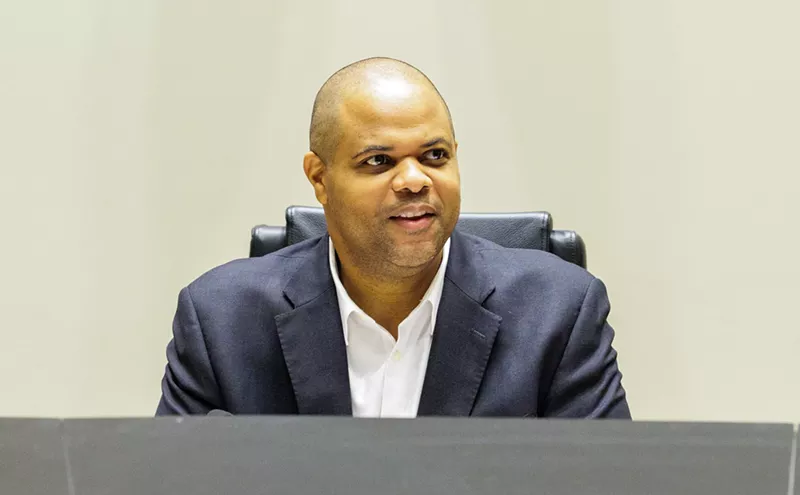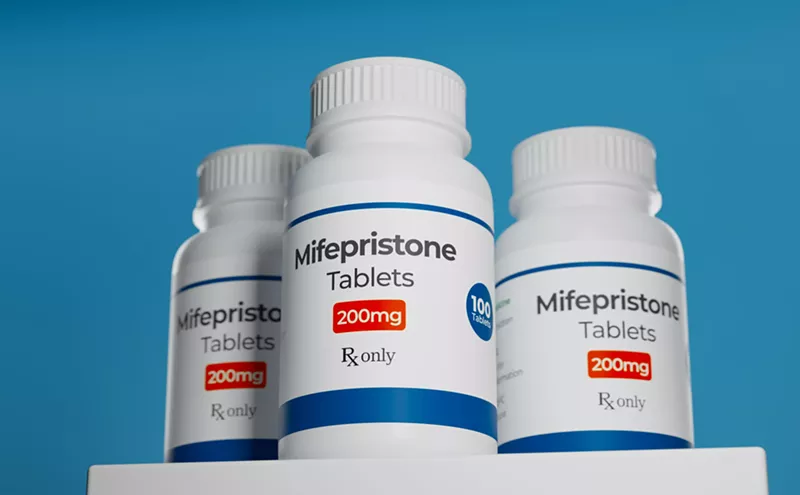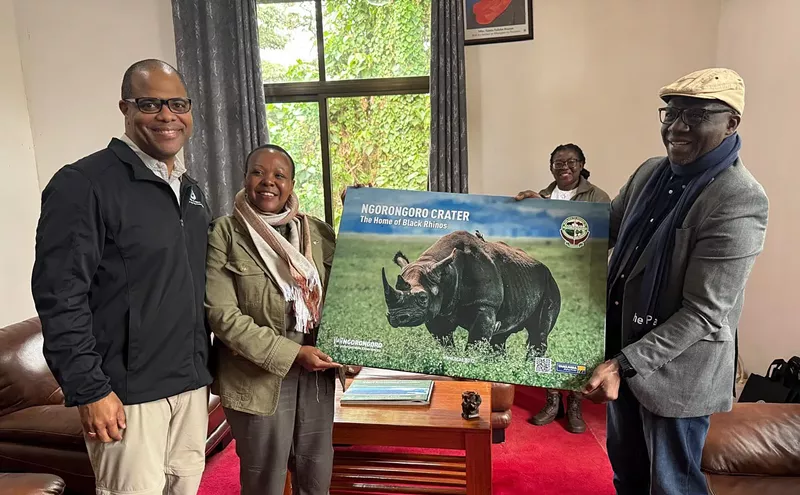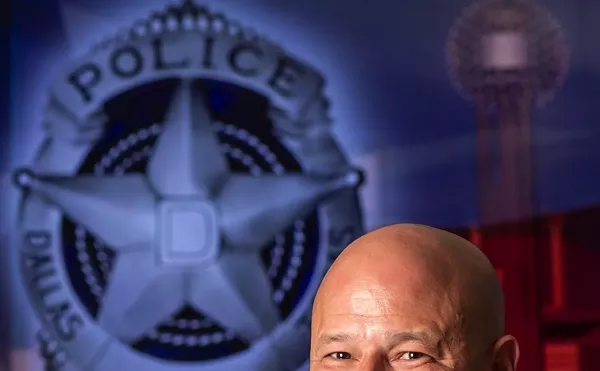There's virtually no remnant of that ill will here today at Spring Fest, a mid-April outdoor shindig in a parking lot in Deep Ellum, with another one-hit wonder, Dishwalla, on the bill. As Tatsch picks his way through the intro, Todd Pipes, Deep Blue's singer, bassist and primary songwriter, steps forward to the microphone, bathed in amber light, the literal version of what Russell Hammond was talking about in Almost Famous when he called himself a "golden god." "You say we've got nothing in common," he sings, without a hint of shame. "No common ground to start from/And we're falling apart."
The audience--mostly female, mostly in their 20s, mostly indifferent until now--perks up just a few measures into the song, moving closer to the stage. Soon, they're singing along, dancing, rocking back and forth, bouncing in place. Some are just smiling. Two women hold on to each other, their matching grins so broad they can't sing every word through the unstoppable upward curves of their mouths.
Maybe this song changed some of their lives. Doubtful, but maybe. "Breakfast at Tiffany's" certainly did that for Pipes, his guitar-playing brother Toby and longtime drummer John Kirtland, along with various guitarists over the years. It topped the charts worldwide and took the band with it. It also earned them the nickname "Deep Blow Someone" when the fame that resulted inevitably gave way to backlash from local musicians and fans, when the bottom fell out and they were surrounded by more enemies than friends. All this because of a four-minute ditty about trying to patch together a relationship with tiny bandages such as a mutual love for the film Breakfast at Tiffany's.
But they don't care about all that. They could have kept cranking out albums, milking their fan base for every last dollar, deftly deflecting the criticism, but the truth is, they were happy when it all went away. They never needed the spotlight; they always wanted to be behind the scenes, helping other bands get there. They didn't want to be the Beatles--they wanted to be George Martin. And now, with their own recording studio, they're doing just that. Called Bass Propulsion Laboratories, it has helped launch a few fellow local musicians onto the national scene and given numerous burgeoning bands a chance to make a name for themselves, the Pipes brothers offering their equipment and experience to whomever needs it. This is the way they saw it happening when they were teen-agers, recording their friends' bands. Yet even these good deeds are coated in the resentment that lingers from the "Breakfast at Tiffany's" days.
"There are not enough people who know how much those guys have done for bands around town," says Eric Martin, whose band Hi-Fi Drowning recorded its latest album, Rounds the 'Rosa, at Bass Propulsion. "It's never written about. It's never talked about. They do so much for all these local bands, and I don't know if it has something to do with them being in Deep Blue Something or whatever. That's bullshit. The bottom line is, they've put their money and their energy and their time toward other musicians nonstop for the last three years. And if they don't get respect for that just because somebody doesn't like Deep Blue Something, then that's just fucking bullshit."
A decade or so ago, Deep Blue Something was just like the bands that come to Bass Propulsion Laboratories now. That is, until they recorded their second album, Home, using money from a bank loan co-signed by Ed Lamonica, the former owner of Denton's Rick's Place and currently of Curtain Club. (Lamonica declined to comment, saying, "Someone told me that if you don't have anything nice to say, don't say anything at all, and I have no good comments at all.") Home was released on Dallas' Rainmaker Records in 1994, but it wasn't until the following year when KDGE-FM began playing "Breakfast at Tiffany's." A lot.
A major-label deal with Interscope Records followed soon after, and the label released a slightly remodeled Home in June 1995. By the end of the year, Home had reached first position on Billboard's Heatseekers charts, and "Breakfast at Tiffany's" had peaked at No. 30 on the Modern Rock Tracks and third on the mainstream charts.
The band toured heavily in support of the album; "Breakfast at Tiffany's" topped the charts across Europe and Asia as well, and brought the band with it. "Whatever happened here, it was 10 times as big in the rest of the world," Todd says. "People thought we were just on vacation. We'd cruise through, play Dallas and not come back for another eight months. Nobody realized we were off conquering the globe."
They never quite conquered their hometown, though. Known at the time for much heavier bands such as Caulk and Brutal Juice, Denton didn't think Deep Blue Something was a good representation of the town's scene. They were too soft, and "Breakfast at Tiffany's" was too syrupy. Brutal Juice, after all, released an album titled Mutilation Makes Identification Difficult (with the would-be hit "Whorehouse of Screams"), also in 1995, also on Interscope. Caulk front man Aden Holt coined the phrase "Deep Blow Someone" and put it on T-shirts and stickers.
"Why did I make it?" Holt asks now. "To create exposure for my band. It worked. I honestly had no reason to. I had no personal vendetta against the band. I just thought it was funny."
Dallas didn't want anything to do with Deep Blue Something either. "I think the Toadies' fans were kind of embarrassed that Deep Blue Something was being said in the same sentence as the Toadies, considering they had no relationship whatsoever," Holt says. "Plus, with Hagfish, Tripping Daisy, Brutal Juice, the Reverend Horton Heat, there was this whole wave right then, and Deep Blue Something didn't have a space in that."
Jeff Whittington, whose band Adam's Farm toured with Deep Blue Something both before and after the deal with Interscope, says criticism is just part of the equation. "Any time a band is successful, there will be people in the scene that try to backbite that success a little bit," he says. "It's that way everywhere. And I don't think it's the most positive thing, but it happens. You've got to shake it off. The Deep Blue Something guys are the kings of 'shake it off and keep working.'"
No one in Deep Blue Something admits to being too upset by the band's treatment. "When people do that it almost promotes you," Toby says. "We must be really successful. We must be pretty big if people are that upset." It helped, of course, that the band missed most of the anti-DBS campaign. "I remember people telling us stuff about that," Toby adds. "But what did we care? We were in Japan. It was hard to get upset about that right then. "
Besides, criticism from their peers was a superficial problem compared with the litigation the band was involved in. Deep Blue Something sued Louis Bickel Jr. --whose label, Doberman Records, released the group's first album, 11th Song, which included an early version of "Breakfast at Tiffany's"--over royalties. Bickel countersued, saying he owned the rights to all the songs on the disc. Those lawsuits, plus several others (Kirtland was sued by a neighbor over a barking dog; former guitarist Kirk Tatom sued when he was fired), loomed over the band's travels. (Bickel eventually received a settlement, though the Pipes brothers wouldn't say how much or who paid it.)
But the group pressed on. After the world tour was finally over, Deep Blue Something recorded its follow-up to Home for Interscope. (Never released in America, it eventually came out in Japan as Byzantium.) Interscope was making more money off bands such as Limp Bizkit and wanted to hold the album. The group, fearing the momentum from Home and the overseas success would be lost, sued to break its contract. They won and were released from the deal, receiving their masters and the money owed them as well. All of a sudden, they were back where they started.
Which, as it turns out, was right where they wanted to be. Despite the worldwide fame and travel, superstardom was never the goal for the Pipes brothers. They never wanted to serve in the rock-and-roll army. They were just using it as a GI Bill of sorts, learning how to run a recording studio. They'd worked with engineer David Leonard (known for his work with Prince, Duran Duran and, more recently, Avril Lavigne) and producers Charles Fisher (the Hoodoo Gurus, Air Supply) and Roy Thomas Baker, best known for producing Queen's "Bohemian Rhapsody" and introducing Journey to Steve Perry.
"You couldn't pay any amount of money to get that type of education," Todd says.
They couldn't wait to put it to use.
Toby Pipes is sitting in an office chair in a small studio minutes from downtown Dallas, and his older brother Todd is lying on the floor beside him, stretched out. And they're saying something that anyone familiar with Deep Blue Something's quick, unexpected and far-reaching rise to fame probably would never imagine: The band was a nice sidetrack that led them back to their teen-age hobby of recording bands. They've come full circle, to the place they were meant to be. It just happened that their detour was something that others spend their whole lives striving for--and, in most cases, never achieve.
This is Bass Propulsion Laboratories, the studio they run in the Hickory Street Annex, a collection of buildings off of Second Avenue inhabited mostly by artists. They're behaving as though they're at home because, well, basically they are. They've spent plenty of time here since they rented this space three years ago. The original purpose was for recording the American follow-up to Home, which would be taken to labels in hopes of finding someone to release it. (In 2001, Phoenix upstart Aezra Records quietly released Deep Blue Something.)
With the studio up and running, the Pipes siblings decided to record other projects as well. Second in line was the Hundred Inevitables, Toby's project with Deep Blue's guitarist Clay Bergus and longtime friend Whittington. Since then, BPL has worked with a broad spectrum of local bands, from country-tinged (Tweed, John Price) to spacey (Hi-Fi Drowning) to experimental (25% Toby) to more straightforward rock (Crash Vinyl, the Chemistry Set). The Pipes brothers have also worked with bands just getting started--Moonshot Radio, the Broadcast, Seventh Day Jericho and Loop 12, among others.
Two of the first projects they took on are still the best known. Flickerstick, unhappy with sessions recorded elsewhere for Welcome Home the Astronauts, had Todd and Toby rework the album, which helped them get on VH1's Bands on the Run as well as a deal with Sony, who re-released the album after more tweaking at BPL. Then Flickerstick's manager, Paul Bassman, got the Pipes brothers another gig, with another local soon-to-be-famous band. This time it was sprucing up Pieces of Nothing for Drowning Pool, whose heavy sound wouldn't seem to fit in with the guys who wondered if an Audrey Hepburn film was enough to save a relationship.
"I just can't believe they agreed to do it," Todd says. "I mean, if I was them, I would have been like, 'You want us to do what with whom? You've got to be kidding.'"
(Bassman responded to requests for interviews with himself and the bands he represents, saying he prefers to work behind the scenes and that the bands were busy. He did say that Drowning Pool and the Pipes brothers had a difference of opinion after the recording was completed.)
It would seem that having worked with Drowning Pool--one of the biggest bands to come out of the area since, well, Deep Blue Something, and also the group with the least in common with them--would have dissolved anyone's fears that Bass Propulsion Laboratories was little more than a "Breakfast at Tiffany's" sweatshop. Not so. The dislike of Deep Blow Someone and the song that took them to the top of the charts still haunts them today. Nevertheless, the stigma seems to diminish a little more with each new recording session.
"I think that was definitely kind of a hurdle for them to overcome," says the Chemistry Set's Stephen Duncan, who brought his band's album to BPL to be mixed. "But I think that's pretty well behind them now with the studio going so well and the work they're doing there. It's so good, and they're working with such good bands that people's perception of them can be changed. It's definitely hard. In any kind of entertainment industry where people perceive you in a certain way, it's hard to change that. But it's not impossible."
One of BPL's most recent sessions may finally change that perception. Slow Roosevelt--repeatedly voted Dallas' best hard rock band--has been recording at BPL for an upcoming release on Reality Entertainment. "The Pipes brothers came recommended from our A&R rep," singer Pete Thomas explains. "They had done some work with some of his other bands as well. We thought it was a strange match-up, too. Like eating a four-star meal and washing it down with Kool-Aid. We had heard they did some work with Drowning Pool, so we gave it a shot."
Another step toward credibility is BPL's new addition, Stuart Sikes, whose name is likely familiar only to those who pore over liner notes. Formerly working out of Memphis, Sikes recorded the White Stripes' White Blood Cells, along with albums by Rocket From the Crypt, the Promise Ring and Jets to Brazil. His standing in the indie-rock community gives the brothers some respectability.
Yet even with all of that in their favor, the Pipes' reputation at home needs work. No matter what Todd and Toby serve for dinner, people can't get the taste of "Breakfast" out of their mouths.
"It's sad that people are like, 'Oh, those are those "Breakfast at Tiffany's" guys,' and they never really care about the fact that they're really trying to help their scene," says Macavity's Beau Wagener, who's been a Deep Blue fan since age 14. "It has got to be humbling to go to this from playing huge arena tours in Europe. None of the other bands from Dallas ever did that. And it's a shame that no one will give them credit for it. They didn't sell out. They had a hit song. Everyone would ride that wave. And if you say you wouldn't, then you're stupid."
Todd Pipes still loves "Breakfast at Tiffany's." In spite of everything it brought them--the fame, the lawsuits, the lost friends, the found enemies--he and Toby still love the success and the song responsible. Because while "Breakfast at Tiffany's" made them a laughingstock, it also filled the coffers and gave them the kind of knowledge they couldn't have picked up elsewhere. Now Todd and Toby pour their money, time and energy into a music scene that has never given them the credit some fellow musicians say they deserve. But they're doing it out of love, not for validation. They're too old, Todd jokes, to worry about that anymore.
The fact is, Todd and Toby have left their fingerprints on a new generation of Dallas bands, shaping the scene that gave birth to them and then dumped them from the nest. They are still hanging around--whether people want them to be or not. They're there for bands that need an engineer, a producer, a kick in the pants to get in the studio and finish some tracks, book a show, get the album artwork done. Maybe just a shoulder to cry on. Whatever might happen to a musician in this town, you can believe the Pipes brothers have already been through it.
"If we had just continued recording like we were doing when we were teen-agers, then we never would have had that perspective of being in a band and knowing that you can't listen to yourselves," Todd says. "So, I think that the best thing we got out of it--beyond the technical knowledge we gained by working with the people that we did--was that we know how it feels to be in a band."
More to the point, they know how it feels to be in a band that people, for whatever reason, hate. And, as Whittington says, they know how to laugh it off.
"Deep Blow Someone?" Todd says, smirking. "There are lots of better things you could do with our name."



